Abstract
Undesirable mealtime behaviors of a hospital cottage of retardates were reduced by contingent timeout procedures applied by ward personnel successively to one undesirable behavior after another, in a multiple baseline design. In some cases the timeout procedure was to remove the subject from the room until the meal was finished; in other cases (depending on the health of the child and the initial rate of the behavior to be reduced), timeout consisted of a 15-sec removal of the child's meal tray. Undesirable behaviors were defined as stealing, using fingers inappropriately, messy use of utensils, and pigging (eating directly with mouth or eating spilled food). Timeout was applied to these behaviors in that order, and in each case led to a marked and useful reduction in the behavior throughout the group. As these undesirable behaviors were reduced, more appropriate mealtime behaviors emerged: as inappropriate use of fingers declined (under contingent timeout), messy utensil behavior increased; later, as messy utensil behavior declined (under contingent timeout), a defined category of neat utensil behavior increased. Weights of the subjects were monitored steadily throughout the study and showed essentially no change.
Full text
PDF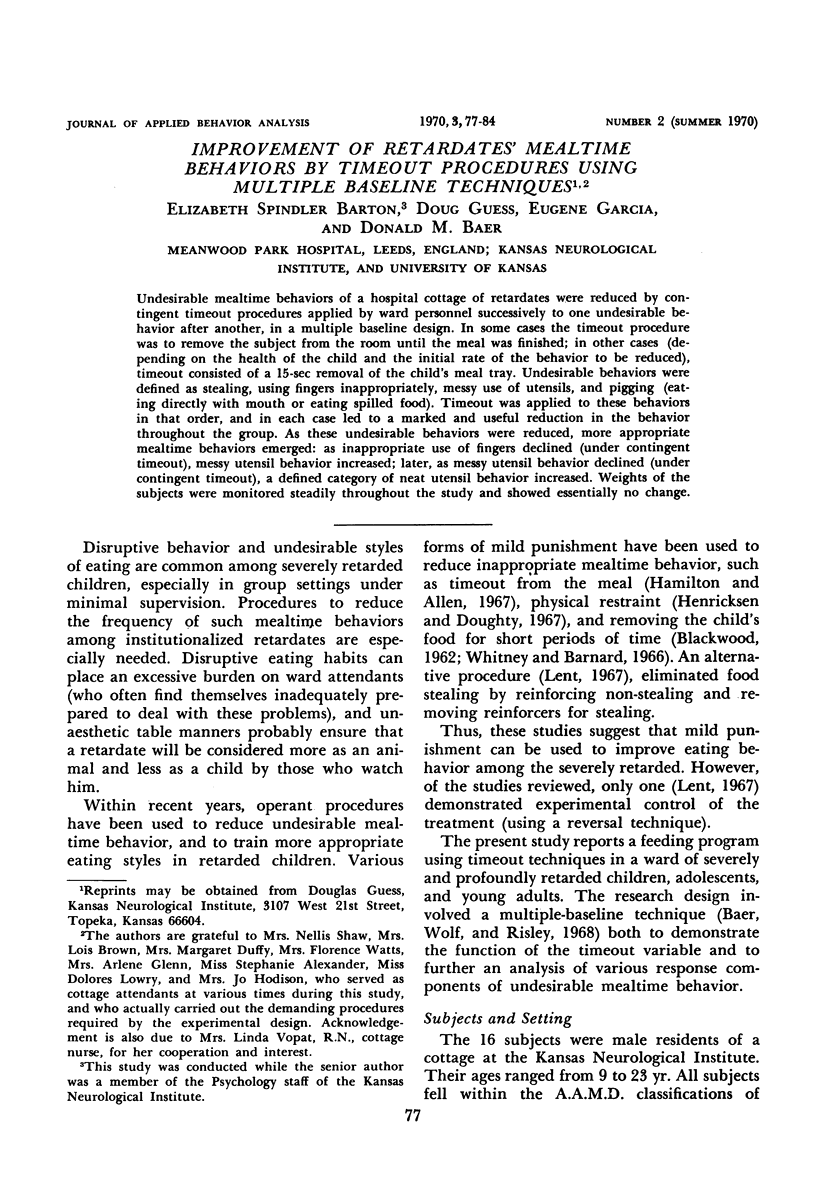
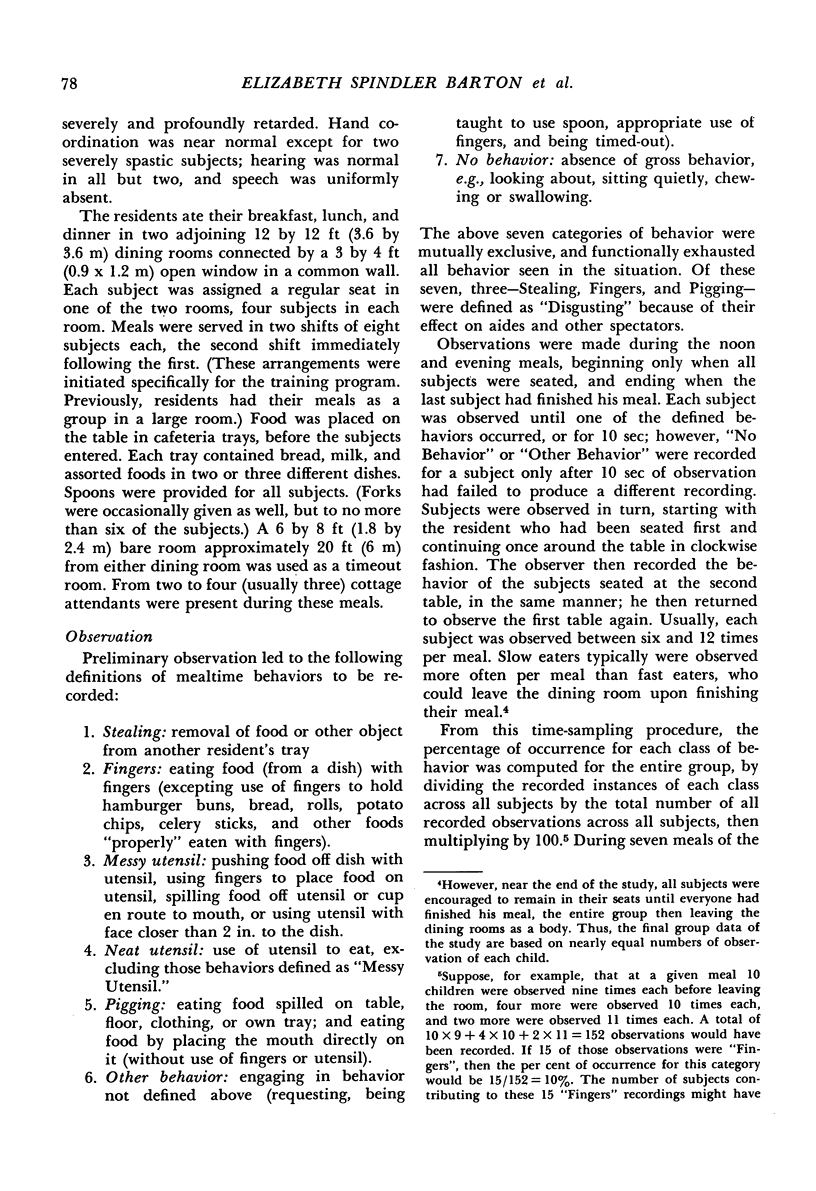
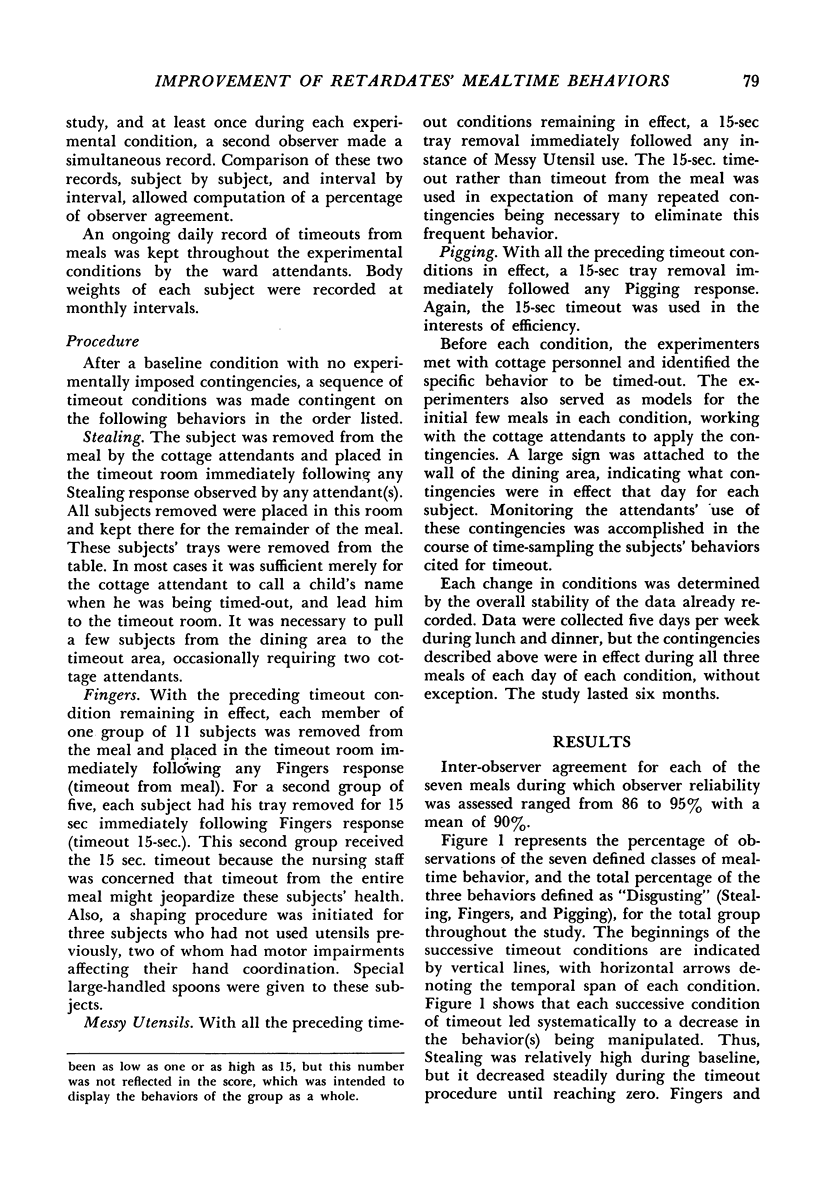
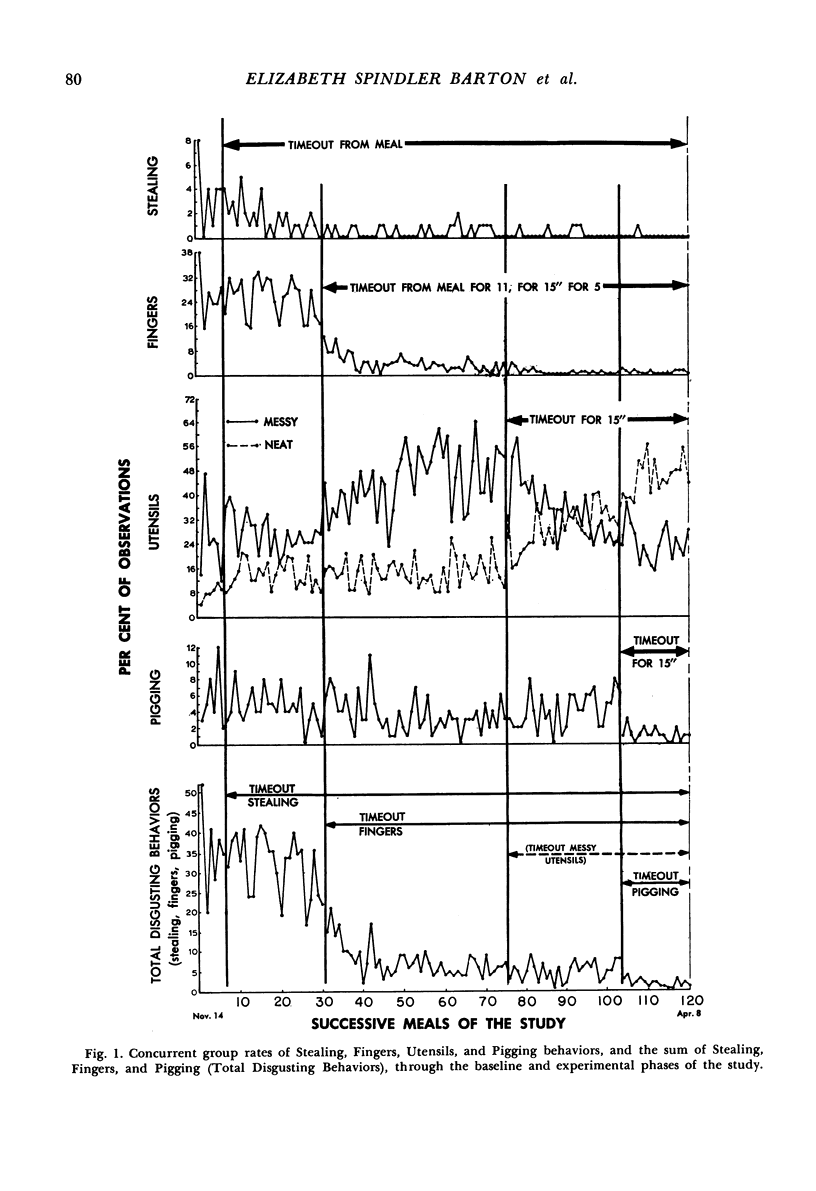
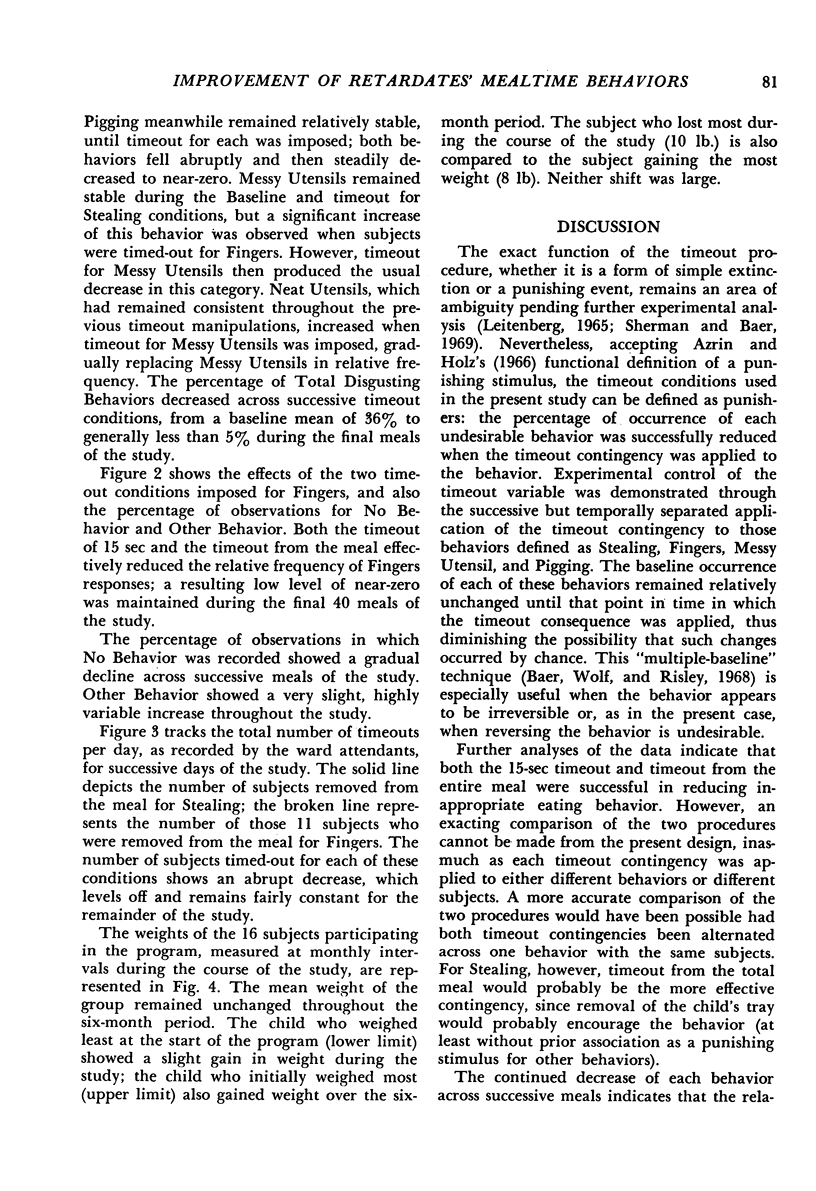
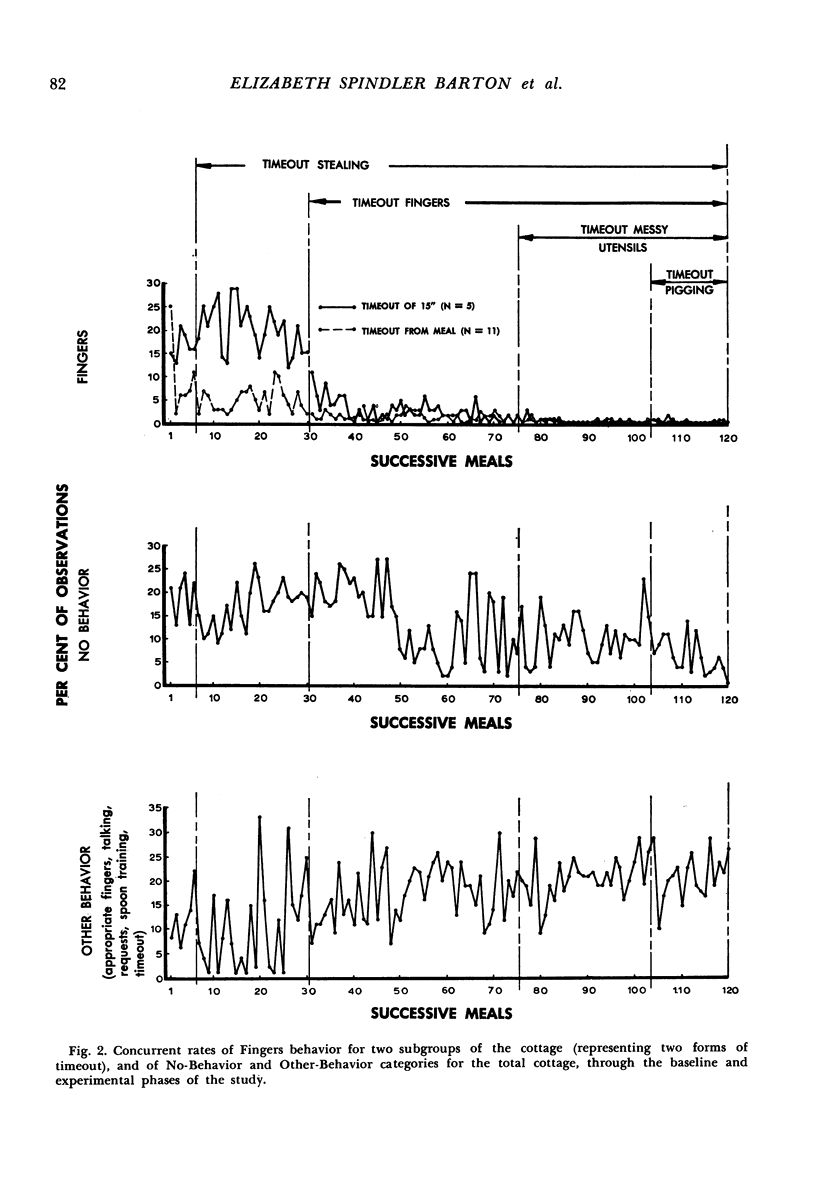
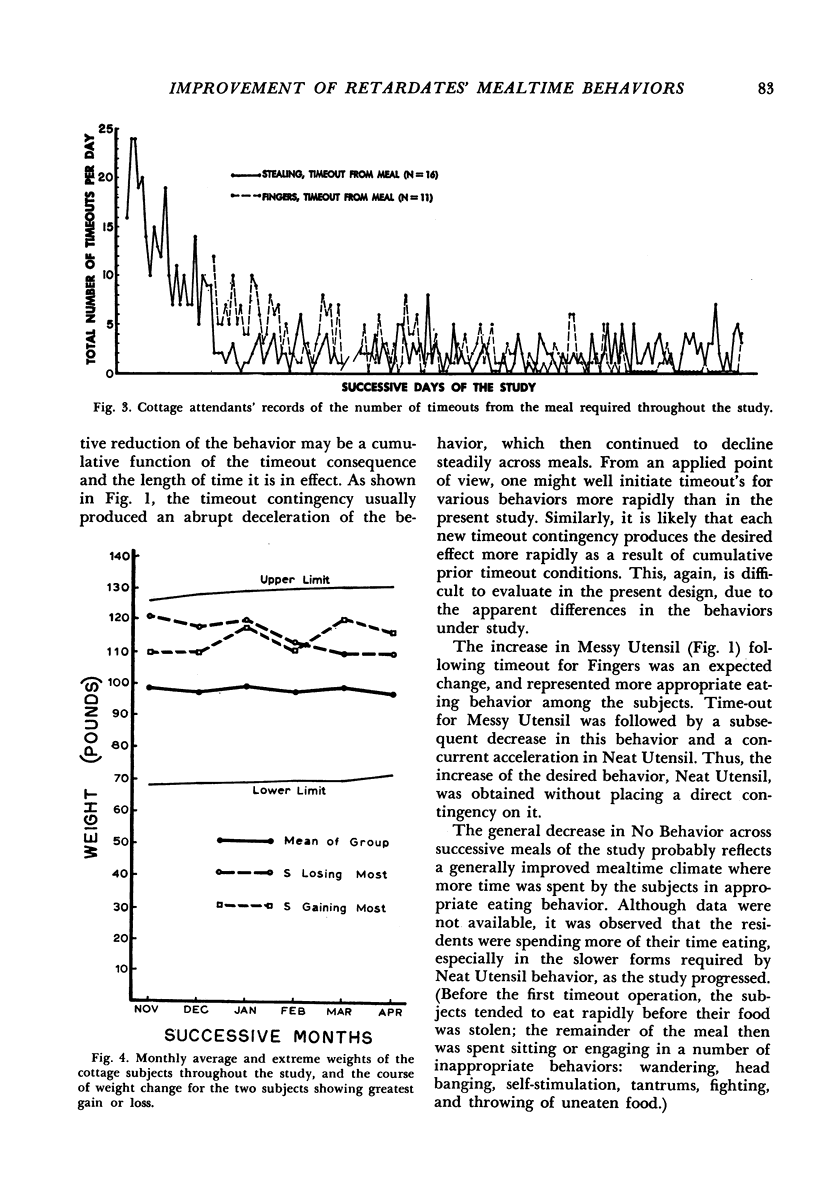
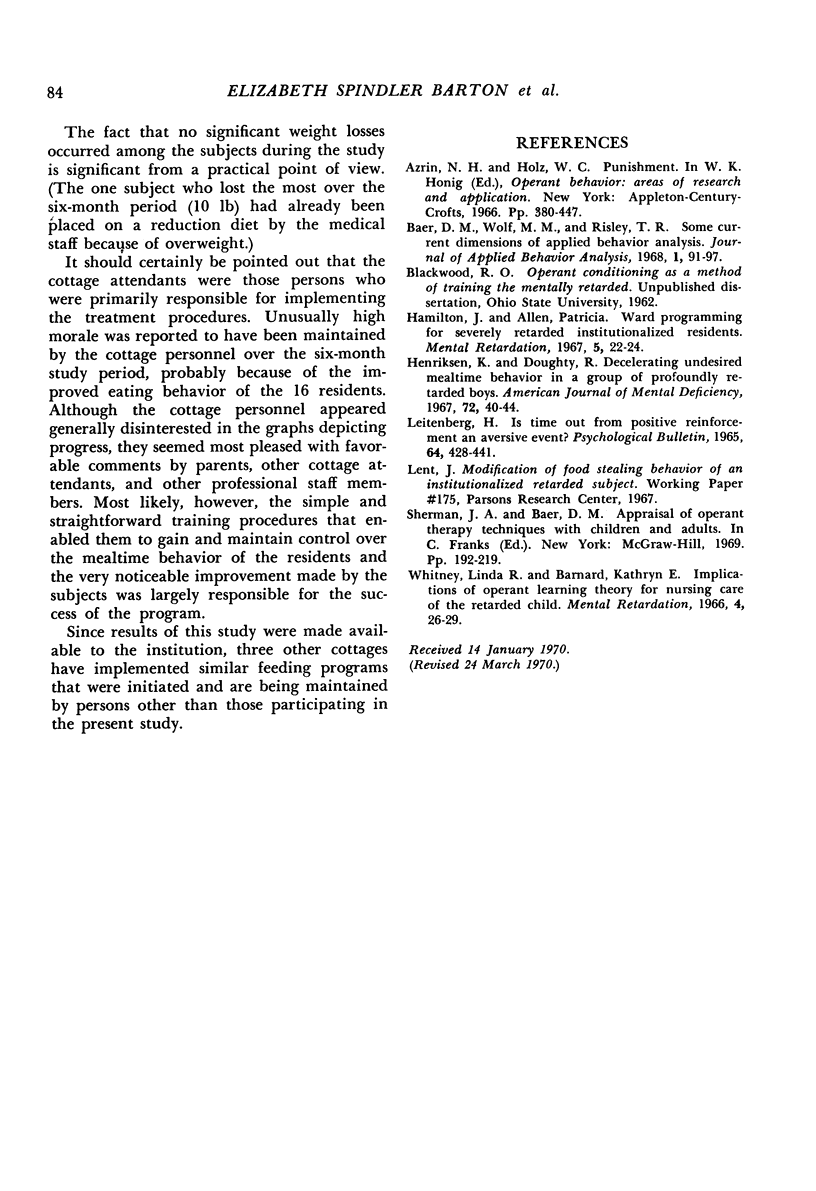
Selected References
These references are in PubMed. This may not be the complete list of references from this article.
- Baer D. M., Wolf M. M., Risley T. R. Some current dimensions of applied behavior analysis. J Appl Behav Anal. 1968 Spring;1(1):91–97. doi: 10.1901/jaba.1968.1-91. [DOI] [PMC free article] [PubMed] [Google Scholar]
- Hamilton J., Allen P. Ward programming for severely retarded institutionalized residents. Ment Retard. 1967 Dec;5(6):22–24. [PubMed] [Google Scholar]
- Leitenberg H. Is time-out from positive reinforcement an aversive event? A review of the experimental evidence. Psychol Bull. 1965 Dec;64(6):428–441. doi: 10.1037/h0022657. [DOI] [PubMed] [Google Scholar]
- Whitney L. R., Barnard K. E. Implications of operant learning theory for nursing care of the retarded child. Ment Retard. 1966 Jun;4(3):26–29. [PubMed] [Google Scholar]


